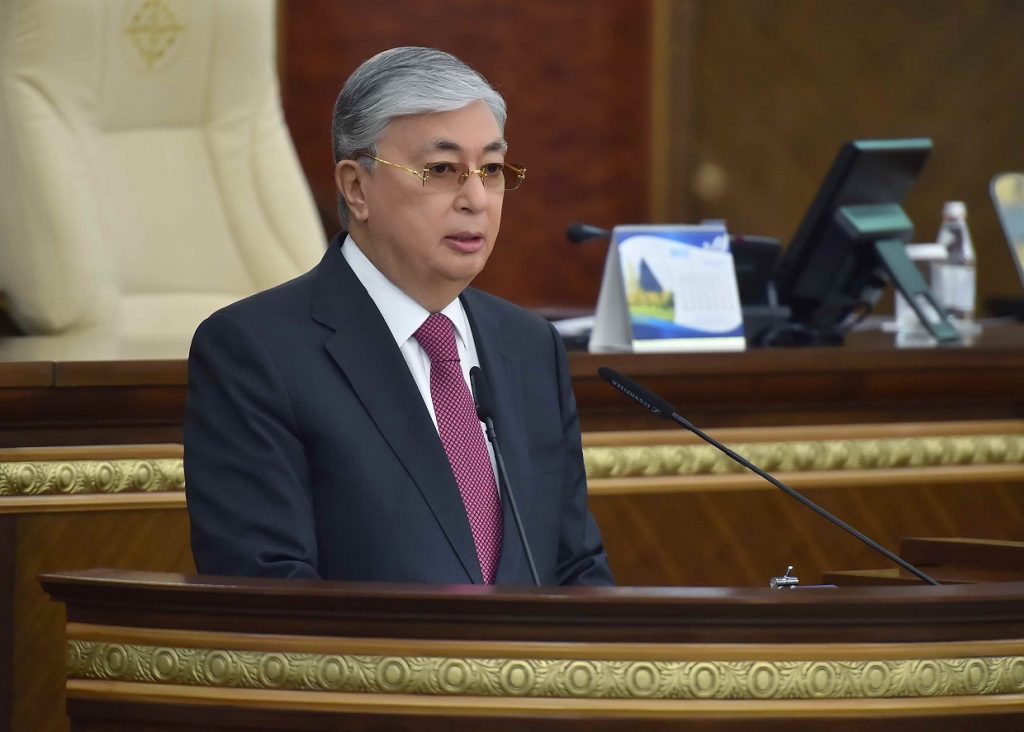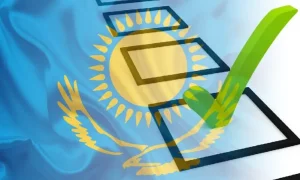 These are unprecedented times. In many countries around the world, daily life seems to be on hold due to the health crisis caused by COVID-19.
These are unprecedented times. In many countries around the world, daily life seems to be on hold due to the health crisis caused by COVID-19.
The pandemic has put many areas on lockdown, as the coronavirus continues to spread globally and cause many deaths.
Kazakhstan has taken a proactive role in countering epidemic. The country has not underestimated the danger.
From end January, the very start of the epidemic, the Government has monitored the global situation and put plans in place to safeguard the people’s health. A special government commission was created to implement these plans.
Since February, Kazakhstan has closed its international borders to countries which have a high incidence of the virus. And all citizens have been advised to avoid overseas trips. Given the uncertainty around the world, the Government had to take measures to protect its citizens.
This is why on March 15 President Kassym-Jomart Tokayev (above) declared a state of emergency. The decree specified that entry and exit will be restricted to diplomats and official delegations and foreigners under certain conditions.
It also introduced quarantine measures and suspended the activities of shopping and entertainment centres. Kindergartens, schools and universities were closed at the recommendation of medical experts.
On March 23, President Tokayev addressed the State Commission on the state of emergency. To prevent a further wave of infection, he introduced increased quarantine measures, including rules to protect the country’s medical services and citizens most at risk.
Kazakhstan has recorded fewer coronavirus cases compared to other countries despite sharing a long border with China, where the disease originated. However, as the situation in other countries has shown, it is important to take strict preventive measures.
Complacency has not been an option for the Government. The President ordered the Ministry of Health to monitor the availability of medical facilities and equipment and ensure Kazakhstan’s medical services are prepared for every eventuality.
Despite these steps, COVID-19 cases have increased in Kazakhstan’s two biggest cities – capital Nur-Sultan and densely-populated Almaty. So, on March 23, the President took a decision to lock down the two cities.
As well as restricting movement of people and vehicles, authorities have limited public transportation and instructed restaurants to switch to only-delivery service. Penalties were alo imposed on people who broke the quarantine rules.
The aim of these measures is to prevent the disease from spreading to other parts of the country. The Government’s main concern is the health and safety of the citizens.
So, on March 23, the President announced that the police force will be mobilised to protect the most vulnerable people. He also called for communities to cooperate and work together and safeguard those individuals at risk. Those most at risk are families who have lost their sources of income and have no economic “safety net”.
The President addressed these concerns in his statement at the State Commission. He said the payment of principal and interest on all loans of people affected by the crisis will be suspended. In addition, large families, people with disabilities and other socially vulnerable groups will receive free groceries, primarily domestic products.
President Tokayev also announced initiatives to regionally monitor the levels of socially significant goods in order to protect the citizens from price spikes. Governors will coordinate the inter-regional flow of such goods to eliminate local deficits and prevent panic buying of essential goods.
The Government has put forward concrete measures to support the financial sector. President Tokayev announced that the Government will allocate US$10 billion to support businesses affected by the crisis. This excludes tax benefits and local support. About US$740 million will go towards boosting employment.
A bonus of a month’s salary will be paid to doctors, police officers and other specialists involved in the fight against the coronavirus as well people who have lost their income due to the state of emergency.
To support enterprises, President Tokayev ordered a freeze on bank loan repayments by small and medium-sized businesses for the duration of the emergency as well as a deferral of payment of all types of taxes and other obligatory payments for three months.
In his address on March 23, he also highlighted the need to maintain economic harmony. He announced new measures which will reduce fiscal pressures on entrepreneurs. This will see tax deadlines extended and the removal of stringent inspections.
Such steps will ensure that businesses have a greater ability to make decisions and take responsibility for their commercial activities. The President akso granted an additional US$1.5 billion to such businesses as working capital.
Across the world there have been instances of widespread panic due to a lack of direct information flow from national governments. To protect Kazakhstan’s citizens against such dangers and rumours, the President asked the Ministry of Information and Public Development to provide daily briefings. The website coronavirus2020.kz was also set up to inform the people about the Government’s actions in the fight against the coronavirus.
Everyone will have to get used to the new reality for perhaps many weeks to come. It may not be straightforward, but through cooperation, both at the individual and state levels, the country is well equipped to overcome the crisis. As President Tokayev said: “If each of us fulfil our duty with responsibility, I believe that we will quickly come out of this difficult situation.”
Though Kazakshstan is located close to areas in Eurasia where the spread of the coronavirus has been rampant, timely action by the Government has resulted in a relatively low number of cases in the country and full control over the epidemic.
Kazakhstan has always pushed for closer regional and global cooperation. The pandemic has laid bare the vital need for teamwork between states.
Hopefully, governments around the world will collaborate closely to control the pandemic and will continue to work together once the crisis is over to resolve other issues. Perhaps this will be the silver lining to these challenging times.












